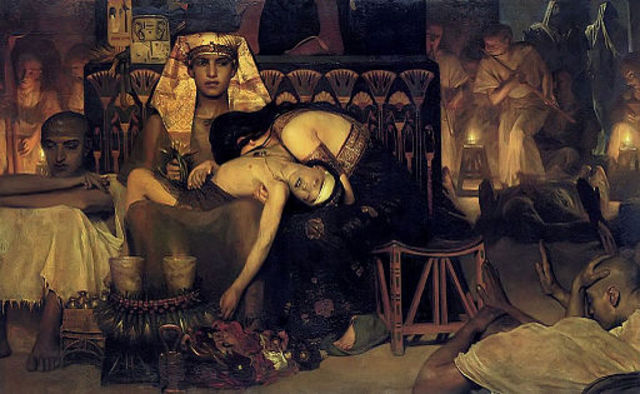Written by Rachel Cohen of Jewish Leadership Network (JLN) and My Aish LA
This week’s Torah portions, Bo and Be’Shalach, open with the final and most devastating plague about to hit Egypt. God says to Moses, “Tell Pharaoh that exactly at midnight, every firstborn in Egypt will die.” Yet, when Moses approaches Pharaoh, he changes the message; he said that at “approximately” midnight, the Egyptian firstborns would die.
Rashi (Rabbi Solomon ben Isaac, the foremost commentator on the Torah) was bothered by this. Why did Moses change the words that God used? He answered that Moses was afraid Pharaoh’s astronomers would make a mistake. They would be watching the clock to see if Moses’ prediction was accurate. Even though the firstborns would in fact, die exactly at the stroke of midnight, the astronomers might calculate the wrong time and mistakenly assume that it wasn’t midnight. They would then accuse Moses of being a liar. To prevent this from happening, Moses said the plague would occur “approximately at midnight.”
At first glance, it might seem that Moses was a bit neurotic. After all, at this point, the Egyptians had been struck by nine plagues, all of which God announced with accuracy and precision! Now, after the tenth plague, after they would lose their firstborn children as announced by God, would they really return to Moses and say, “Devastating plague, Moses — but you were wrong about the time”?
Furthermore, today we live with an acute awareness of time. We have clocks all around us. We can’t buy groceries or go to the bank without a date and time stamp adorning our receipts. We are constantly reminded of our point in time. But we have atomic clocks that measure frequency with an accuracy to one second in 300 million years. The ancient Egyptians had sundials and astronomy.
We would assume that if there was a discrepancy in time, maybe, just maybe, the Egyptians would realize the mistake was their own. Yet, Moses feared that wouldn’t be the case. Moses, as a leader, had to develop a keen understanding of the human psyche. It’s hard for us to realize we are wrong. We assume we are right whether we really have evidence to the facts or our assumption just happens to be the first thing that came to mind. We assume that our position, whatever it might be, is correct. It’s just a given. And it is very difficult to get us to change our minds.
May we all be blessed to have the open-mindedness and clarity needed to grow as humans.
Shabbat Shalom!
—
This article is part of Ha’Am’s Friday Taste of Torah column. Each week, a different UCLA community member will contribute some words of Jewish wisdom in preparation for Shabbat.

